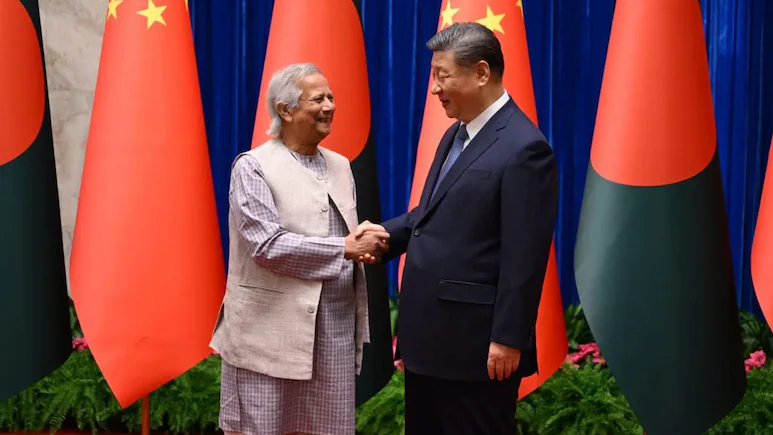China is deepening its political involvement in Bangladesh, holding high-level engagements with a wide spectrum of political parties ahead of the country’s 2026 national elections. This marks a growing trend of Beijing’s strategic presence in South Asian domestic affairs.
On Tuesday, Chinese Vice Minister of Foreign Affairs Sun Weidong met with a delegation from the Bangladesh Nationalist Party (BNP), the main opposition party during former Prime Minister Sheikh Hasina’s tenure. The BNP had boycotted the 2024 elections, alleging the process was “rigged and unfair.” Sun emphasized China’s hope for a free and fair electoral process and expressed Beijing’s interest in cooperating with Bangladesh’s future government.
But China’s overtures have not been limited to the BNP. In April, Peng Jiubin of the Chinese Communist Party’s International Department met with Jamaat-e-Islami Bangladesh — a party often seen as aligned with Pakistan — to discuss the upcoming elections. Earlier this month, Chinese Ambassador Yao Wen hosted leaders of the newly formed National Citizens Party (NCP) at the Chinese Embassy in Dhaka, continuing the same dialogue.
The NCP emerged from the 2024 student-led uprising that led to the ousting of the Sheikh Hasina government. Its convenor, Nahid Islam, was part of the interim administration headed by Nobel laureate Professor Muhammad Yunus. Yunus himself has actively advocated for stronger China-Bangladesh ties, notably during his official visit to Beijing in March, where he urged China to establish a strategic foothold in Bangladesh — a suggestion widely interpreted as a move to curtail India’s influence in the region.
Yunus argued that India’s landlocked northeastern states — often referred to as the “seven sisters” — could be bypassed if China expanded its base via Bangladesh and Myanmar. This statement drew a sharp reaction from Indian Prime Minister Narendra Modi, who warned against rhetoric that could destabilize the region, when the two leaders met during the BIMSTEC Summit in Bangkok.
China’s sustained engagement with multiple Bangladeshi parties — including those that may rise in influence during the next election cycle — suggests a strategic calculation by Beijing to cement long-term influence in a region that remains geopolitically vital. While Chinese officials continue to frame these meetings as “routine exchanges,” the timing and breadth of the outreach reflect a more proactive and calibrated political strategy.

